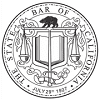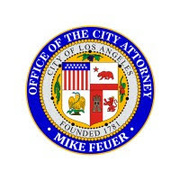Description:
About the Office:The Office of General Counsel (OGC) is in-house counsel to the State Bar, providing a full range of services, including representation of the Bar in all state and federal courts and before administrative agencies; advocacy of Bar discipline and admission cases in the California Supreme Court; and, providing legal advice to the State Bar Board of Trustees, and all State Bar entities, executives, and programmatic clients.?
OGC provides legal advice and representation in the following areas: admissions and discipline, antitrust, Bagley-Keene Open Meeting Act, bankruptcy, California Public Records Act, collections, contracts, copyright, governance, labor and employment, legislation, regulations and rules, real estate, regulatory work, and general corporate matters.?
About the Position:
The Office of General Counsel (OGC) seeks an Attorney with a strong background and experience in any or combination of the following areas: litigation representing governmental or public agencies in state and federal court; advising on laws applicable to public or governmental agencies, including California Public Records Act, Political Reform Act, Bagley-Keene, Government Claims Act, public governance, gift regulations and ethics; and advising and developing policies for public, governmental, quasi-judicial agencies.
Definition:
Attorney III
Under direction and with a progressively increasing degree of complexity and independence, the Attorney III performs complex legal work that includes the identification of legal issues; recommendations of appropriate action; resolution of legal problems; interpretation and application of laws, rules, regulations, and other legal authorities; legal research and analysis; preparation of legal documents, opinions, and other memoranda, and litigation activities. The Attorney III handles assigned litigation, frequently takes lead responsibility in case/project management presentations, and assists in the formulation, determination, and effectuation of management policies of the State Bar.
Attorney IV
Under general direction, the Attorney IV performs highly complex legal and litigation work that includes the identification of legal issues; recommendations of appropriate action; resolution of legal problems; interpretation and application of laws, rules, regulations, and other legal authorities; legal research and analysis; and preparation of legal documents, opinions, and other memoranda. The Attorney IV takes lead responsibility in case/project management presentations and in the formulation, determination, and effectuation of management policies of the State Bar. Incumbents in this class are well-experienced attorneys with expertise in a broad or specialized area of law and have demonstrated their ability to independently perform assignments consisting of complex and sensitive legal work of the State Bar and to consistently produce favorable results in these proceedings. .
Distinguishing Characteristics
The Attorney II differs from the Attorney III in that the latter handles a more complex and voluminous caseload, works under less supervision, and may also serve as a lead over a small team of attorneys and/or administrative and professional staff.
The Attorney III differs from the Attorney IV in that the latter has a more complex caseload and serves in a lead capacity over other attorneys and/or administrative and professional staff.
Examples of Essential Duties
Duties may include, but are not limited to, the following:
When Assigned to the Office of General Counsel:
Attorney III
- Maintains close working relationships with Management, subject matter supervisors, and members of the team to which they are assigned in performing the duties and responsibilities of the position.
- Coordinates the work of other staff necessary to perform assigned responsibilities and may participate in the training of other personnel.
- Responsible for handling complex matters, with the expectation of producing favorable results.
- Handling litigation matters, including responding to complaints, propounding and responding to discovery, substantive motions, and hearings, up to and including trial.
- Conducting “second look” reviews of complaints filed against attorneys that have been closed by the Office of Chief Trial Counsel without taking any action and determining whether to recommend further actions with respect to such complaints.
- Studies, interprets, and applies laws, court decisions, and other legal authorities that are more complex than those handled by Attorney IIs and is responsible for the preparation of legal documents, pleadings, memoranda, reports, opinions, and other materials.
- Prepares for and completes cases, projects, presentations, and other assignments of a more complex nature.
- Coordinates with other attorneys, volunteers, and other constituencies as assigned.
- Ensures the adequate, effective, and timely preparation, presentation, and completion of investigations, cases, and/or legal projects assigned.
- Keeps informed and assures that subordinate staff is informed concerning the applicable law, rules, procedures, policies, and practices relating to their function.
- May participate in the effectuation and/or formulation of management policy and represents and counsels management with respect to human resources issues.
- Evaluates administrative problems and procedures and recommends solutions and or alternative methods or procedures.
- Assumes a senior-level role in advising management in the effectuation and/or formulation of management policy.
- Provides substantive and procedural guidance to lower-level Attorneys.
- Provides direction to, and reviews the work of, non-attorney staff.
- May perform a number of other similar or related duties which may not be specifically included within this position description, but which are consistent with the general level of the job and the responsibilities described.
Attorney IV
- Performs work involving innovative theories, specialization in an area of law in which the Attorney is recognized as having particular expertise.
- Provides guidance to attorneys and other staff, as needed, in researching, interpreting, and applying legal principles of the most complex nature.
- Assists in developing and delivering training to attorneys and staff in area(s) within their expertise.
- Responsible for highly complex matters, including handling complex litigation, with the expectation of producing favorable results.
- Conducts “second look” reviews of complaints filed against attorneys that have been closed by the Office of Chief Trial Counsel without taking any action, and determining whether to recommend further actions with respect to such complaints.
- Studies, interprets, and applies laws, court decisions, and other legal authorities of a highly complex nature.
- Prepares legal documents, pleadings, memoranda, reports, opinions, and other materials in highly complex matters.
- Develops appropriate and sound strategy for handling of assigned cases, including litigation.
- Prepares for and completes cases, projects, presentations and other assignments of a highly complex nature.
- Coordinates with other attorneys, staff, volunteers, and stakeholders, as assigned.
- Ensures the adequate, effective, and timely preparation, presentation, and completion of investigations, cases, and/or legal projects assigned.
- Stays informed and assures that subordinate staff is informed concerning the applicable law, rules, procedures, policies, and practices relating to their function.
- Takes principal-level role in the effectuation of management policy and represents and counsels management with respect to human resources.
- Evaluates administrative problems and procedures and develops solutions and or alternative methods or procedures.
- Performs other duties, as assigned.
Employment Standards:
Attorney III
Knowledge of:
- Substantive knowledge of law, rules, decisions, practices, and procedures of the State Bar, California Supreme Court, State Bar Court, and California Legislature.
- Substantive knowledge of effective investigation techniques, case management, and presentation of matters to administrative bodies.
- Scope and character of federal and California statutory law and provisions of the federal and California constitutions.
- Rules of evidence and conduct of proceedings in trial and appellate courts in California.
- Rules and procedures related to public hearings.
- Principles of effective work coordination and strong case/project management.
- Advanced analytical skills.
- Principles of effective time management.
- Principles of oral advocacy.
- Strong writing and oral communication skills.
- Advanced legal research and preparation of reports, briefs opinions, and pleadings.
- Principles of conflict resolution.
- Knowledge of the rules and regulations governing the practice of law in the State of California.
Ability to:
- Receive and relay detailed information through verbal and written communications.
- Conduct legal research using computer technology and traditional library resources.
- Work under the pressure of short deadlines.
- Effectively address conflict.
- Review and analyze complex written documents.
- Obtain and present mat
Similar Jobs



